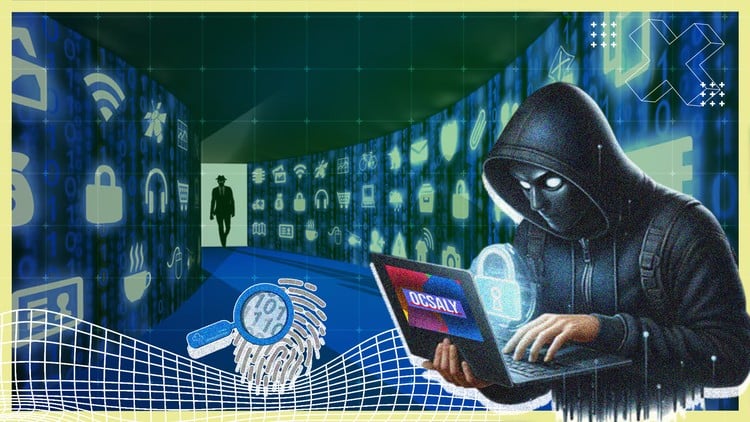
Learn digital forensics and be computer forensics investigator / Certificate after completing course / DFMC+ / DFIR 2025
⏱️ Length: 21.1 total hours
⭐ 4.36/5 rating
👥 122,082 students
🔄 May 2025 update
Add-On Information:
Note➛ Make sure your 𝐔𝐝𝐞𝐦𝐲 cart has only this course you're going to enroll it now, Remove all other courses from the 𝐔𝐝𝐞𝐦𝐲 cart before Enrolling!
- Explore the critical initial steps of securing a digital crime scene, understanding how to prevent data contamination and preserve volatile information immediately upon incident detection.
- Master the art of forensic imaging and evidence acquisition from various storage devices, ensuring bit-for-bit copies are made without altering the original source data.
- Utilize specialized forensic software suites and open-source tools to efficiently process and analyze vast datasets, including detailed file system examination and timeline reconstruction.
- Uncover hidden or deleted information through advanced data recovery and file carving techniques, essential for reconstructing events and finding crucial evidence often intentionally obscured.
- Investigate deep operating system artifacts, such as registry hives, event logs, and temporary internet files, to build a comprehensive picture of user activities, application execution, and system changes.
- Understand fundamental principles of network traffic analysis, learning to interpret packet captures to identify malicious communication, data exfiltration, or unauthorized access attempts.
- Learn methodologies to extract and analyze data from mobile devices, navigating the complexities of different operating systems (iOS, Android) and application-specific data structures.
- Grasp the essential legal frameworks, ethical guidelines, and chain of custody procedures governing digital investigations, ensuring all collected evidence is admissible and legally sound.
- Develop the ability to meticulously document findings and construct compelling forensic reports suitable for legal proceedings, internal investigations, or compliance audits.
- Gain practical insight into the role of digital forensics within broader incident response strategies, contributing to rapid containment, eradication, and recovery efforts after a cyber incident.
- Discuss emerging challenges and methodologies in cloud forensics, understanding data acquisition from various cloud environments and their unique jurisdictional implications.
- Practice the critical thinking and problem-solving skills required to formulate hypotheses, test them rigorously, and draw defensible conclusions from fragmented and complex digital evidence.
- Delve into the process of automating forensic tasks and developing custom scripts to enhance efficiency and handle large-scale investigations.
- PROS:
- Practical Skill Development: Focuses on hands-on application and real-world scenarios, vital for immediate impact in a forensics role.
- Industry-Relevant Certification Preparation: Explicitly prepares you for recognized professional credentials like DFMC+, boosting career prospects.
- High Demand Field: Addresses a critical and growing global need for skilled cybersecurity and digital forensics investigators.
- Flexible Learning Pathway: The self-paced structure (21.1 hours) allows for convenient integration into busy schedules.
- Community and Credibility: High student enrollment (122,082) and a strong rating (4.36/5) indicate a valued and well-regarded course.
- CONS:
- Potential Tool Access Barriers: While core concepts are taught, full practical immersion may require learners to acquire or simulate access to specific commercial forensic software or hardware tools, which might incur additional costs or setup complexity.
Learning Tracks: English,IT & Software,Network & Security
Found It Free? Share It Fast!